From June 24th to 25th, 2024, the Chief Digital Officer’s Office (CDO), in collaboration with the Faculty of Resource Science and Technology (FRST), Universiti Malaysia Sarawak (UNIMAS) successfully conducted the ALAM-BoT and Digital Biodiversity Borneo Seminar. This one-and-a-half-day seminar featured 50 participants, including Universiti Malaysia Sarawak (UNIMAS) and Universitas Tanjungpura (UNTAN) academicians and postgraduate students, representatives from several Sarawak Government agencies, Federal agencies, government-linked companies, and media personnel.


The seminar commenced with an opening speech by Professor Dr. Ahmad Hata bin Rasit, the Vice Chancellor of UNIMAS. In his address, he highlighted an international collaboration between UNIMAS and UNTAN, which resulted in 28 international matching grants following the Zoologists Go Global Series 1 visit to West Kalimantan earlier this year. This collaboration aims to promote the Borneo Satellite Network (BoSaN) which is led by Professor Dr. Ramlah binti Zainudin, the Project Director of BoSaN. BoSaN is projected to expand in the near future with the inclusion of the University of Brunei Darussalam (UBD) and Universiti Malaysia Sabah (UMS). The BoSan innovative platform aims to revolutionize biodiversity and conservation studies in Borneo. Professor Dr. Ahmad Hata Rasit stated, “BoSaN will digitalize all research findings in real-time, providing researchers and the public with immediate access to invaluable information. This initiative aims to foster a deeper understanding and wider dissemination of research discoveries.” Additionally, BoSaN seeks to ensure that these research findings are beneficial to the people of Borneo and the global community. According to Professor Dr. Ramlah binti Zainudin, BoSaN is a mission-focused project involving real-time data collection and documentation of Borneo’s unique environment using advanced technological solutions. BoSaN involves collaboration with various universities in Borneo, focusing on three key areas: Climate Change, Conservation of Biodiversity, and Cooperation of Partnerships, supported by matching grants. Furthermore, BoSaN covers diverse studies, including zoology, plant biology, chemistry, aquatic science, and economic aspects, to comprehensively understand the region’s ecosystems. Consequently, this facilitates comprehensive research and data sharing with all Borneo residents across Malaysia, Indonesia, and Brunei.
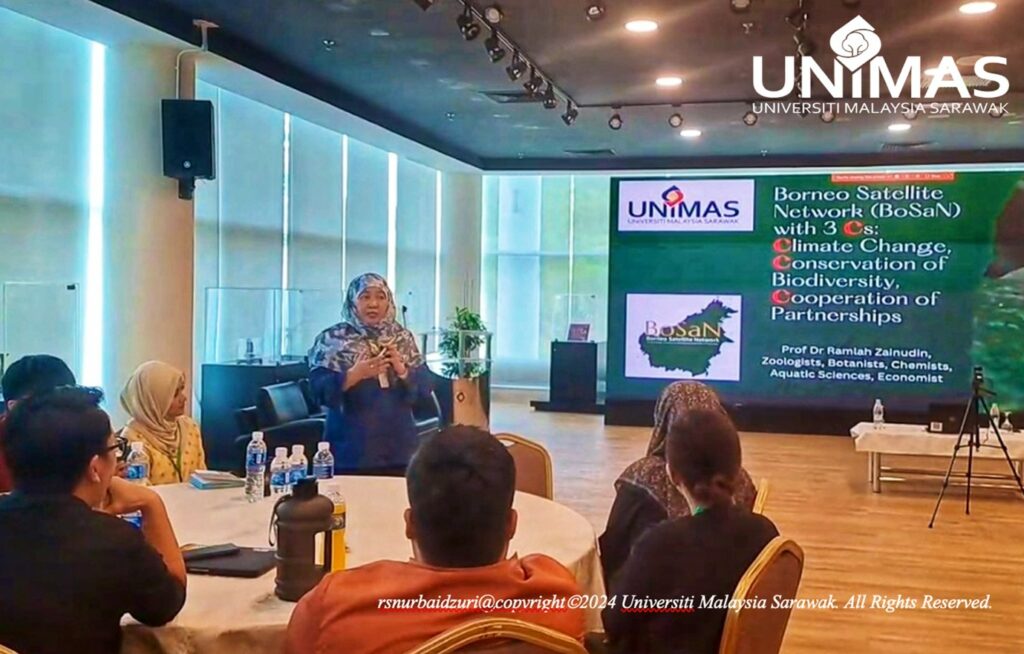
At the same time, UNIMAS has also developed a platform known as the UNIMAS Dataverse, managed by the Chief Digital Officer’s Office (CDO). This platform is designed to ensure that research data can be stored, shared, and accessed online, enhancing data availability. The CDO emphasized that this open-source platform enables the sharing, preservation, citation, exploration, and analysis of research data. It is particularly significant for biodiversity and other research areas, supporting digital documentation, data input, and analytics, ultimately benefiting a wide range of stakeholders. These initiatives underscore the importance of local leadership in biodiversity research and conservation, aiming to ensure that Borneo’s rich biodiversity is properly understood, preserved, and used beneficially for current and future generations.
After the launch and video presentations, Professor Datuk Dr. Mohamed Ghazally Ismail delivered a presentation on “Building a Taxonomic Backbone for Malaysian Biodiversity” using ALAM-BoT, highlighting the importance of reliable biodiversity information and strategies to mitigate biodiversity loss. He also offered his expert opinions on sharing and maintaining biodiversity research data for Borneo. He was assisted by Mr. Lim Kui Fong from Bodhi Vision Sdn. Bhd. who demonstrated ALAM-BoT’s capabilities and showcased its transformative potential in AI-driven biodiversity conservation. He further illustrated how a large language model (LLM), fine-tuned by humans using source guidance such as curated datasets, guidelines, or peer-reviewed papers can draw from its knowledge base to create a custom GPT.
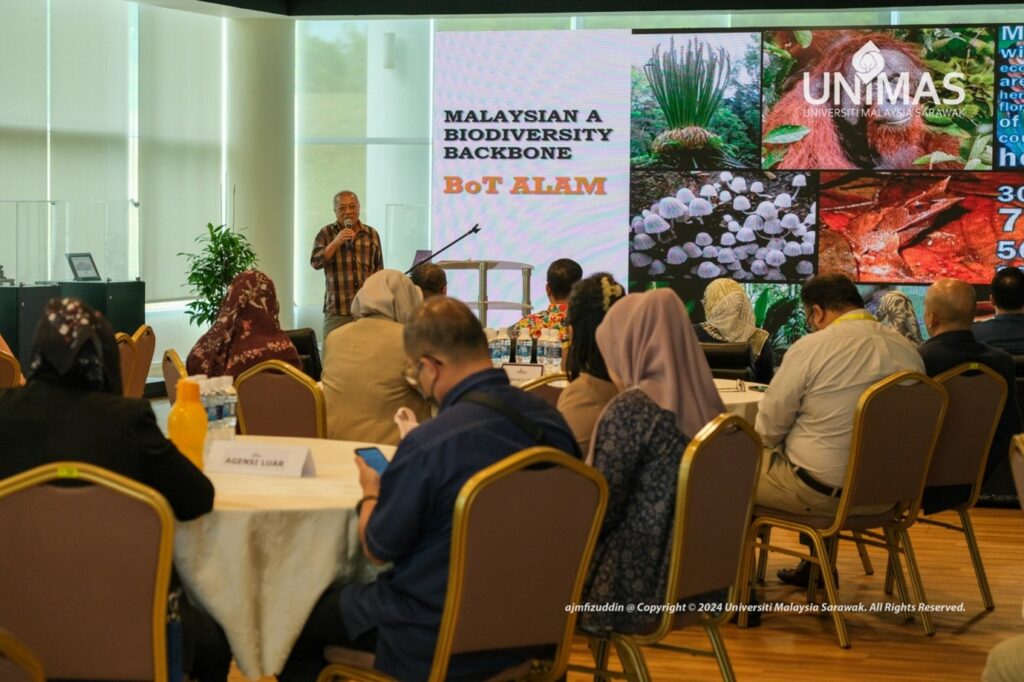
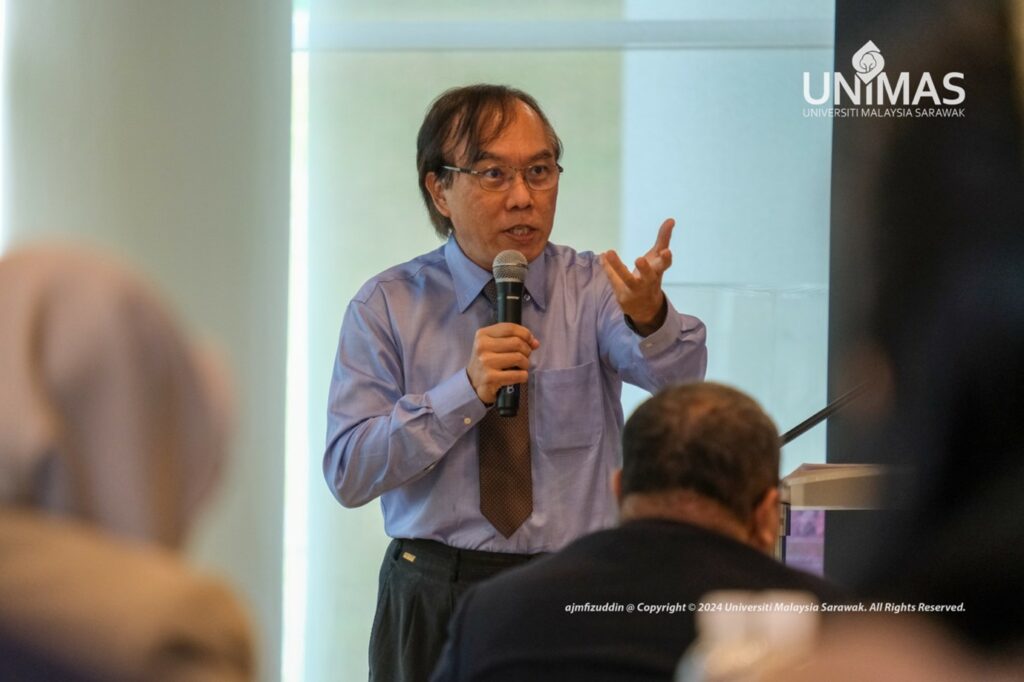
Another segment of the seminar saw the introduction of the Zoological Technology, a new undergraduate programme starting in October 2024, by Professor Dr. Ramlah Zainudin. The new programme is set on leveraging technology for zoological studies. The programme’s curriculum will integrate GIS, data management, and spatial modelling technologies.
On the second day of the seminar, the Chief Digital Officer of UNIMAS, Professor Dr. Wan Hashim Wan Ibrahim, presented the concept of Open Science to the participants. Open Science is an initiative aimed at making research outputs, such as data and publications, more transparent and accessible. It plays an important role in facilitating the exchange of ideas, knowledge, and data for emerging scientific research, which is critical for a country’s progress and development in terms of knowledge creation, wealth creation, and societal well-being. Furthermore, Open Science offers several benefits, including evidence-based policy decisions by stakeholders, reduced duplication, meeting funding agency requirements, and cost, time, and manpower savings. He also emphasized that the research data should adhere to the findable, accessible interoperable, and reusable (FAIR) principles. With FAIR data, researchers can create, share, and reuse high-quality, valuable, high-integrity, and responsible data, thus fuelling scientific progress. Based on these four principles, the CDO developed the UNIMAS Dataverse, enabling researchers to deposit, share, preserve, cite, explore, and analyse their research data, ensuring proper credits through data citations with persistent digital object identifiers. The UNIMAS Dataverse provides essential metadata for biodiversity data, including life science, journal, and geospatial metadata. He also advised on how to share sensitive data and guided participants on uploading their data into the UNIMAS Dataverse.
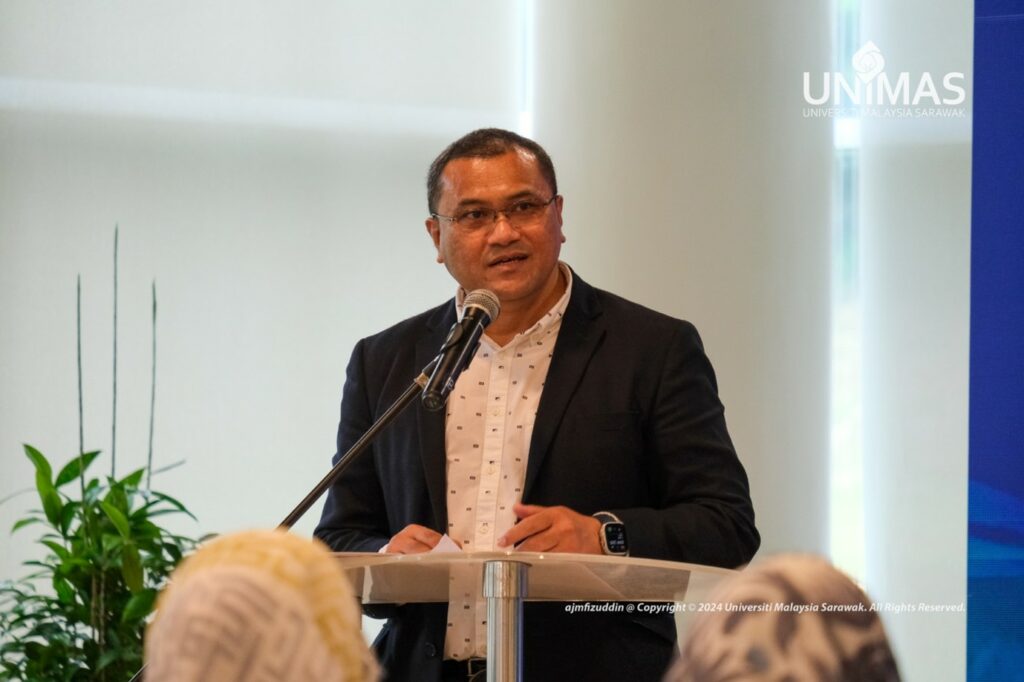
Looking ahead, the integration of AI-driven tools like ALAM-BoT and UNIMAS Dataverse promises to revolutionize biodiversity research. Continued collaboration and innovation will be key to preserving our natural heritage, fostering scientific progress, and ensuring a sustainable future.
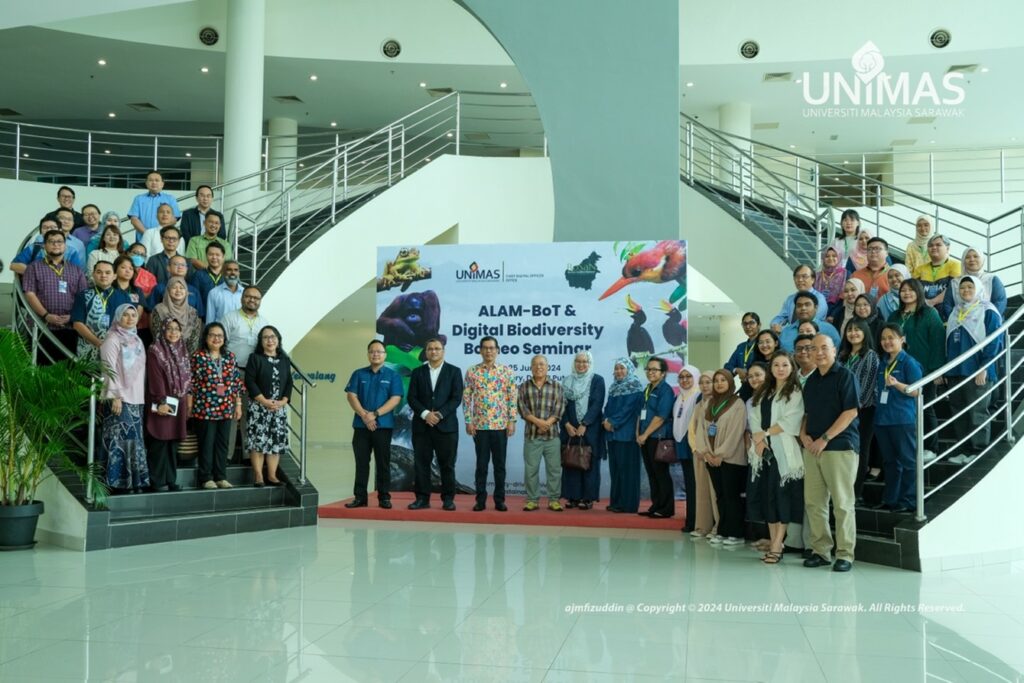
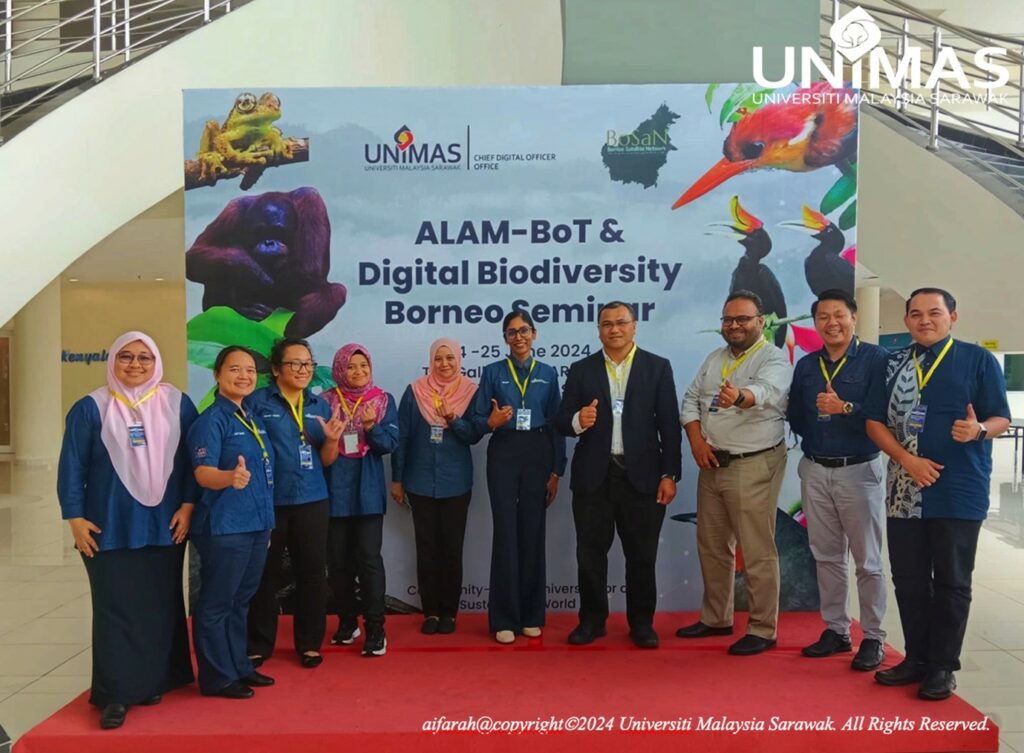
Prepared by Dr. Dency Flenny Gawin, Faculty of Resource Science and Technology (FRST)